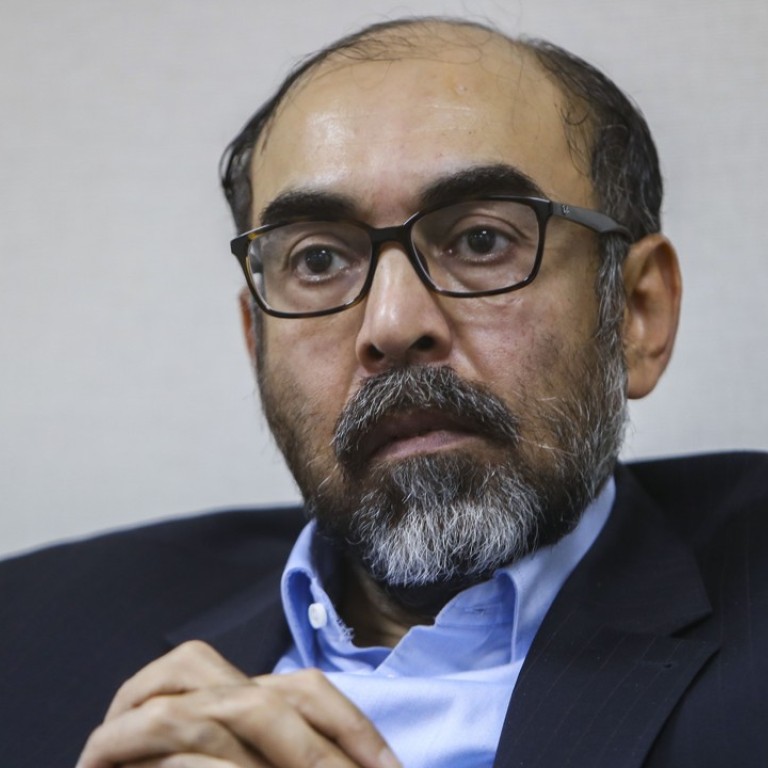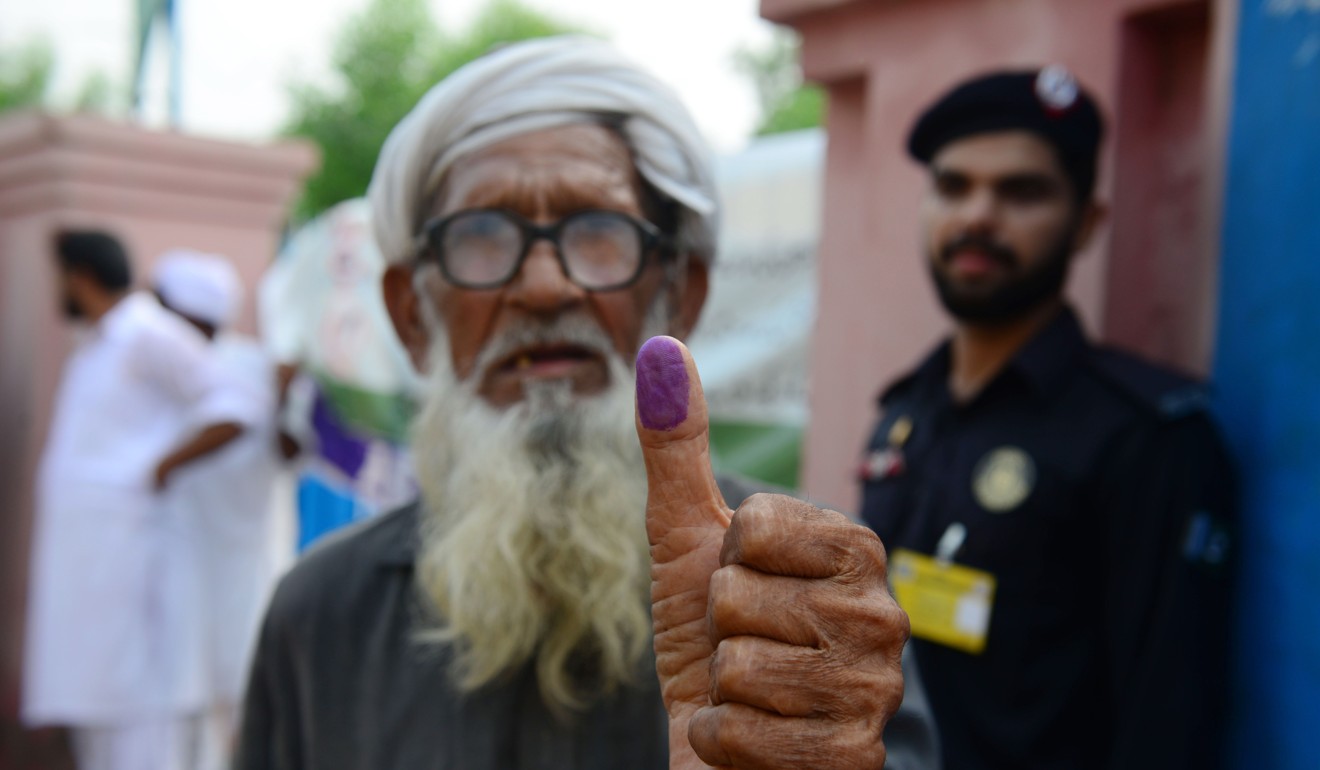
Exclusive | China ‘can count on Pakistan’ for key infrastructure project whoever wins election
Pakistani envoy Abdul Qadir Memon says the outcome of a general election won’t affect Islamabad’s support for the China-Pakistan Economic Corridor
Whatever the election outcome, Pakistan’s next government will remain committed to the country’s ongoing infrastructure projects with China despite concerns over rising debt levels, Pakistan’s consulate general in Hong Kong said on Wednesday.
“The new government, when they will start deliberations with mainland China, are going to receive assurances about the continuity of the policies on China-Pakistan Economic Corridor (CPEC), which will be given – I have no doubts about it,” Pakistani Consul General Abdul Qadir Memon said.
Voting began in the general election on Wednesday morning and Imran Khan, leader of the Pakistan Tehreek-e-Insaf party (PTI), was on track to be the country’s next prime minister.
Khan has been critical of the US$62 billion in Chinese infrastructure projects planned for Pakistan, and has wielded the programme to criticise former prime minister Nawaz Sharif of Pakistan’s ruling Pakistan Muslim League-Nawaz (PML-N), who was jailed last month on corruption charges.

But the PTI and other leading parties all showed support for the CPEC in the run-up to the election, and Khan has praised China as an example for his country to lift people out of poverty.
“In the elections, every candidate and political party is trying to take credit for the CPEC,” Qadir said, adding that it brought much needed resources such as stable electricity to rural areas.
“For Pakistanis, there are very few things that they have consensus about, and the CPEC is one of them.”
How the China-Pakistan Economic Corridor could reshape global foreign policy in Asia
The corridor stretches from Gwadar port in Pakistan’s southern coast to its border with China’s western province of Xinjiang, and will allow China to ship goods like oil to its borders, bypassing high-risk supply routes like the Strait of Malacca.
But it has also added to Pakistan’s high levels of national debt, which would be a “major concern” for the incoming government, Qadir said.
There were also questions of whether Pakistan would need to turn to the International Monetary Fund for another bailout, or look to China for support, he said.
“The debt under the CPEC has the potential to build resources, perhaps, in the long run, to repay those debts, but the question remains the short term,” he said.
US$46 billion Pakistan-China Corridor will not use Asian bank funds
Pakistan has reportedly rejected some CPEC projects as counter to the country’s interests, including a US$14 billion deal to build the Diamer-Bhasha Dam, which it scrapped late last year over funding conditions.
But Chinese help was there when Pakistan asked, Qadir said. Last month China lent Pakistan US$1 billion to boost the country’s falling foreign exchange reserves.
Qadir also said he was optimistic that security in Pakistan would improve, even as at least 30 people were killed in a suicide bomb attack at a polling station in the country’s southwest.

The new Pakistani government would work to assure the security of Chinese citizens involved in the corridor project. Dozens of Pakistani workers have killed by militants trying to disrupt the project and last year 10 workers were killed by attackers while working on a road near Gwadar port.
“Security has improved tremendously,” Qadir said.
At least 31 killed by suicide bomber as Pakistan heads to the polls
Both China and Pakistan had long been aware of the risks involved in the region, even before the corridor project began, he said.
He said Pakistan’s military had been working since 2008 to improve security in its border region with Afghanistan from the threat of militant groups.
“I personally visited those areas and found security to be much much better. But of course no country can claim a 100 per cent foolproof system,” Qadir said. “We have won the war, now we have to win the peace.”


